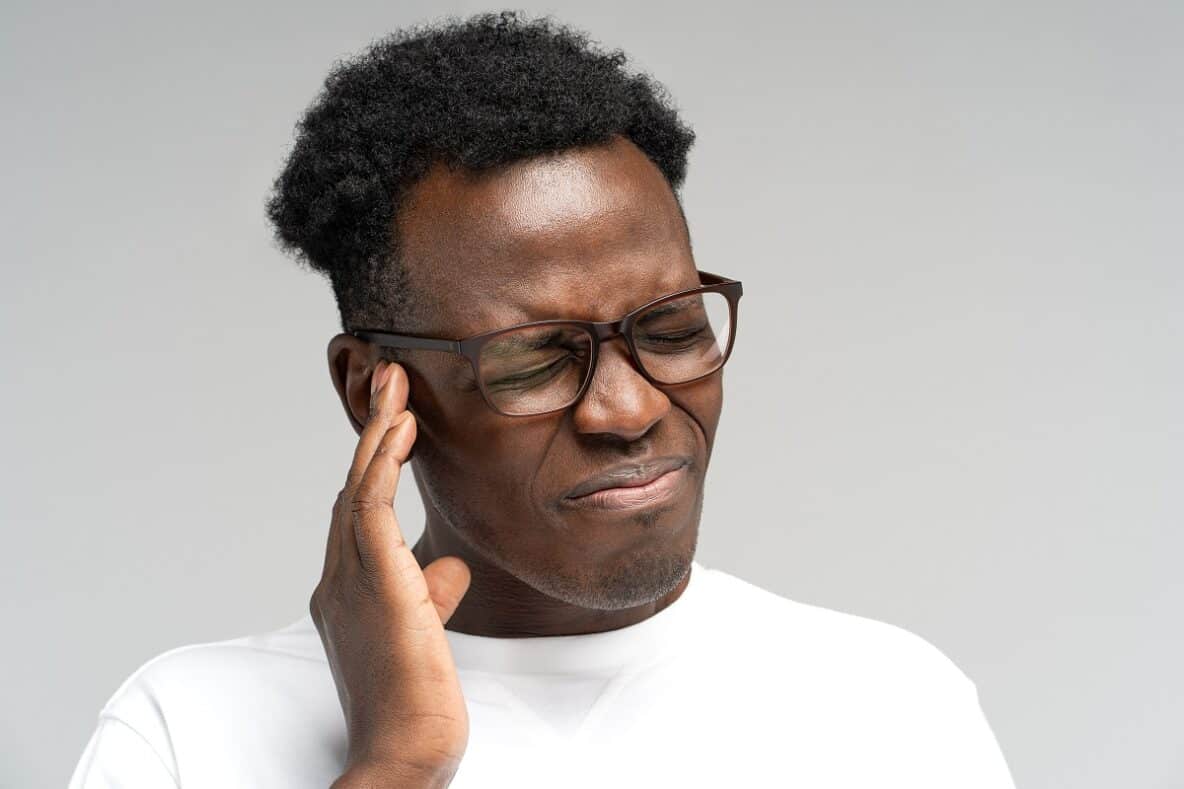We’ve been warned to protect our hearing from the usual suspects like excessive noise and arm ourselves with healthy behaviors like eating a healthy diet. But there’s another contributor to hearing loss you may not have considered: high stress.
How stress leads to hearing loss
When stress is severe or even traumatic, the body cannot as effectively return to its normal, functioning states, even when stress levels return to something more typical. That may result in major health issues like diabetes, heart disease, high blood pressure, and other ailments like heart disease.
Healthy hearing can become vulnerable when other conditions of disease impact the body.
How hearing loss happens
Our hearing is a delicately balanced system. It depends largely upon tiny, sensitive cells located in the inner ear. There, sound is collected from the world around you and turned into sound information in the form of electrical signals. Those signals are sent to the brain via the auditory nerve. Once the sound information reaches the brain’s processing centers, it is translated into meaning, like music and speech and environmental context.
The leading cause of hearing loss is aging itself. Over time, the inner ear cells become worn and die off. They do not regenerate themselves, in fact, the number of cells we are born with is finite. When the amount of inner ear cells we have decreases, we cannot continue to absorb the same amount of sound we previously could. Instead, we begin to lose access to certain sound frequencies. Our brain gets less sound information and we experience hearing loss.
Beyond aging, other factors affect the way our inner ear cells decline. Excessive exposure to loud noises can damage these cells. Additionally, poor circulation and less than optimal levels of blood flow can create an unhealthy environment for these cells and their vitality suffers.
Long term or acute stress often results in negative connotations regarding the effectiveness of the circulatory system. Healthy circulation is necessary for the inner ear’s tiny sensory hairs to accomplish their delicate duty of converting the noise your outer ears collect into electrical impulses that the brain can recognize as audible sound.
Not all stress is bad stress
The goal is not then to avoid all stressful elements in our lives. The body actually needs a certain amount of stress and not all stress is bad stress. When we put moderate loads of stress on the body, such as with exercise, we build stronger muscles that can handle larger degrees of stress that we may encounter in everyday life.
The same can be said for emotional or mental stress. When we introduce or take on tolerable amounts of such stress, we can increase our window of tolerance for the sorts of stress we can handle. We become more resilient and grow stronger as people.
Severe stress is a major health risk
Severe or traumatic stress is much different. These periods of life can leave a lasting impact on the health of a person. Physically, they lead to fatigue, high blood pressure, migraines or headaches, and panic attacks. They can induce insomnia and challenge sleep, which further attacks the body’s homeostasis.
In addition to causing hearing loss, severe stress can also trigger or exacerbate symptoms of tinnitus. This annoying set of symptoms is defined as hearing persistent sounds when none are physically present.
Ways to manage stress
Ironically, sleep is one way to combat high stress loads. You can also incorporate nutritious foods, vitamins and episodes of exercise. There are specific body practices, like Tension and Trauma Releasing Exercises (TRE) or Clinical Somatics that help to unwind patterns of chronic stress within the body.
Talk therapy and medication are ways to manage ongoing stress or even reverse course if you find that you are unable to lift yourself out of a heavy stress pattern.
Meditation is a popular way many people deal with high levels of stress. There are myriad types of meditation techniques available and one is not necessarily better than any other. If you’re new to meditation and want to dip a toe in, use google to try out a few different options in order to find the process that best works for you. Many beginners choose guided meditations to begin this practice of being still.

